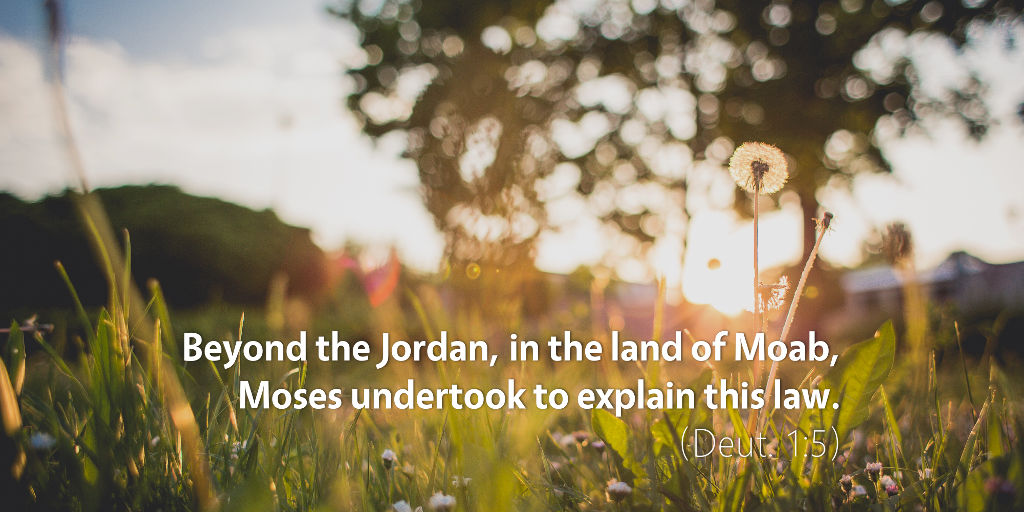Bible Readings for May 28th
Deuteronomy 1 | Psalms 81–82 | Isaiah 29 | 3 John 1
Although Deuteronomy is one of the longer books in the Old Testament, with thirty-four chapters, it does not represent the passage of much time. In Deuteronomy, we do not read new narratives of Israel’s journey through the wilderness, nor of new battles Israel fights, nor even of new ways that Yahweh provides for his people. For the most part, Deuteronomy includes only one speech—the final words of Moses before he dies, immediately before God’s people enter into the Promised Land under the new leadership of Joshua.
Through this speech, Moses renews Yahweh’s covenant with Israel one final time before his death. Since Yahweh’s covenant is one in which Yahweh makes promises to Israel and also commands Israel to obey his law,1 the focus in Deuteronomy is on words—the words that Moses preaches, but even more so the word of Yahweh as revealed through his law. Even the Hebrew name for this book, ’elleh haddebarim, means “these are the words.”2
Deuteronomy—the English name—comes from a Greek translation of Deuteronomy 17:18, where the phrase “copy of the law” was translated as “a second law” (deuteronomion).3 But, it is important to recognize that Deuteronomy does not contain new legislation from Yahweh. In Deuteronomy, Moses is instead expounding, clarifying, and applying the law to the people of Israel—not simply repeating it, but offering a commentary on the whole law that Israel had received at Mount Sinai.4
Still, these are not the dry, intellectual final thoughts of an aloof scholar—Deuteronomy is Moses’s final plea for Israel to obey the word of Yahweh after Moses’s death, as Peter Craigie notes in his commentary: “The style is hortatory, that of an orator addressing his congregation with words designed to move them to obedience and commitment to the Lord of the covenant.”5 It would be far more accurate, then, to say that Deuteronomy really represents Moses’s final sermon before his death, which is what we read in Deuteronomy 1:5: “Moses undertook to explain this law.”
Deuteronomy is the glory of Moses’s ministry. In this book, Moses reminds Israel of how Yahweh had intervened to save them, calling Israel to be his people out of free grace and now demanding that his people walk in his laws and statutes. Deuteronomy represents the best that Moses has to offer.
But in Deuteronomy, we will also see that the glory of Moses’s ministry is already fading. Not only will Joshua replace Moses as Israel’s leader in the short term, but Moses himself will testify to the coming of a much greater leader for God’s people in the long term—one who would come as a king (Deut. 17:14–20) and who would qualify as a greater prophet than even Moses (Deut. 18:15–22).
As we study Deuteronomy, pay attention to the way the shadow of Jesus Christ grows larger and larger.
1 P. C. Craigie, The Book of Deuteronomy, NICOT (Grand Rapids, MI: William B. Eerdmans Publishing Company, 1976), 89.
2 Ibid., 17.
3 John H. Sailhamer, The Pentateuch as Narrative: A Biblical-Theological Commentary (Grand Rapids, MI: Zondervan, 1992), 423.
4 Ibid.
5 Craigie, Deuteronomy, 17.
Podcast: Play in new window | Download (5.0MB) | Embed
Subscribe: Apple Podcasts | RSS | More

Scripture quotations are from The Holy Bible, English Standard Version copyright © 2001 by Crossway Bibles, a division of Good News Publishers. Used by permission. All rights reserved.


